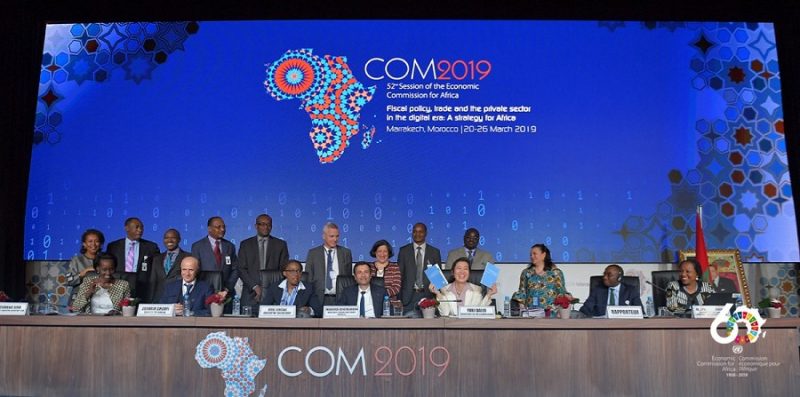Africa is at a critical juncture in its development trajectory. Policies adopted now will determine how quickly the continent accelerates growth and creates prosperity for all.
In 2015, African countries signed up to two important development agendas: the global 2030 Sustainable Development Goals (SDG), which aims to leave no one behind as countries develop, and the African Union’s Agenda 2063, which sets out a blueprint for the “Africa we want”.
A decade away from the SDG endpoint, African countries continue to search for policy mixes to help accelerate the achievement of these targets. However, for many countries, financing remains the biggest bottleneck with implementing capacity a close second.
To meet the SDGs Africa will need to raise an estimated 11 percent of GDP per year for the next 10 years to close the financing gap. Today Africa’s average tax revenue to GDP is below 16 percent. Efficient and effective domestic resource mobilization can address a substantial portion of this financing shortfall.
The Economic Commission for Africa has consistently highlighted this position culminating in the position paper for the 2015 Addis Ababa Action Agenda on Financing for Development.
The Economic Report on Africa: Fiscal Policy for Financing Sustainable Development in Africa, 2019, examines the institutional and policy reforms required to enable African countries to maximize domestic resource mobilization.
The Economic Commission for Africa (ECA) launched the Economic Report for Africa 2019 Report at the 52nd Session of the Conference of African Ministers of Finance, Planning and Economic Development, in Marrakech, Kingdom of Morocco.
The report focuses on the instrumental role of fiscal policy in crowding in investment and creating adequate fiscal space for social policy, including supporting women and youth-led small and medium enterprises.
African governments could increase fiscal space, particularly through increased government revenues by 12-20 percent of GDP annually by implementing fiscal reforms in six key areas.
These areas include: adopting the right fiscal policy stance, reviewing and updating tax policy, expanding and deepening the tax base, improving tax administration, tackling tax avoidance, enhancing non-tax revenue collection and improving natural resources governance to combat tax evasion.
The Report identifies several quick wins in Africa’s pursuit of additional fiscal space to finance its accelerated development and meet the SDGs and Agenda 2063. Among other tools, rapid digitalization offers especially promising opportunities for African countries to increase revenue generation, reduce collection costs and extend taxation to some hard to tax sectors, such as the agribusiness sectors, real estate, and services sectors, while improving the enabling environment for the private sector and in particular small and medium enterprises.
The first priority for increased revenue is the fiscal policy stance. Countercyclical fiscal policies in Africa are shown to have growth enhancing effects.
Second, with the changing composition of many economies, policymakers must review the effectiveness of tax types and ratios. Exemptions and amnesty constitute important leakages and only serve to bolster the company’s profits without being a critical determinant of the decision to invest in a particular country.
The African Continental Free Trade Area is expected to boost investment and growth with no significant long term negative impact on government revenues.
Third, improving revenue administration by broadening the base and simplifying collection are important areas which could raise over $99 billion each year for the next five years. A number of countries such as Uganda have recently witnessed substantial improvements in tax collection by implementing electronic tax filing systems for example. Fourth, non-tax revenue is a significant source of revenue, such as property taxes and in the case of commodity-producing countries royalties.
Five, base erosion and profit shifting, part of illicit financial flows are major sources of leakages, which if addressed could boost tax revenue by an estimated additional 2.7 percent of GDP.
Finally, prudent debt management is required to ensure benefits of increased fiscal space do indeed go to find much needed social and physical infrastructure. Africa can meet the SDG challenge and agenda 2063 through adequate and sustained efficient fiscal policy.
Dr. Vera Songwe is the Under-Secretary-General of the United Nations Executive Secretary of the Economic Commission for Africa.




